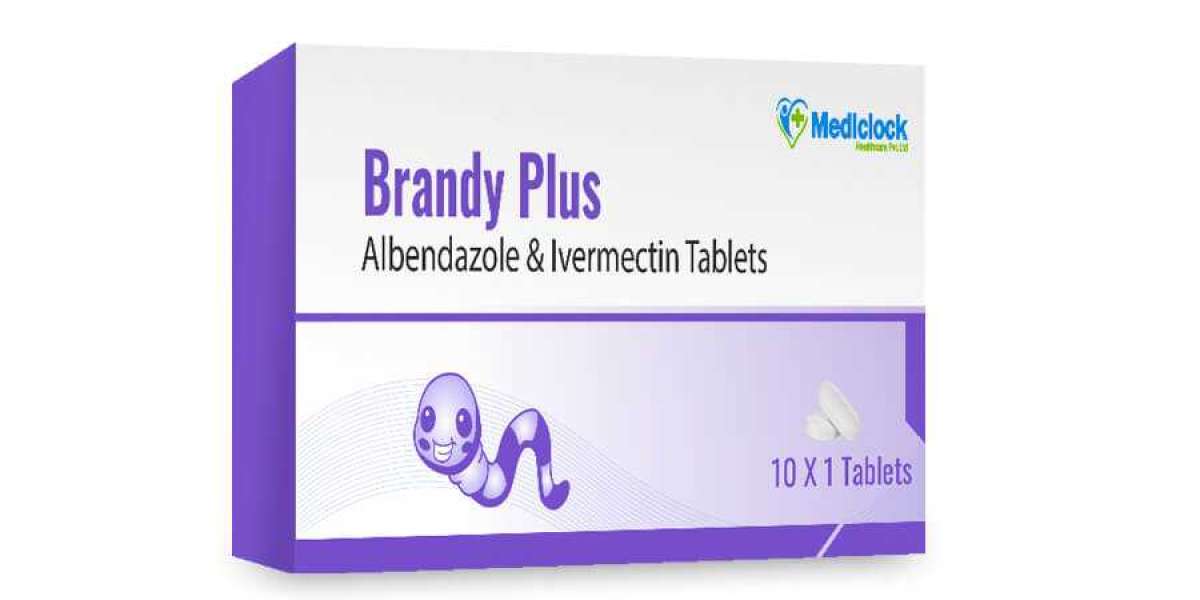the class of drugs called anthelmintic medications. It is used in the treatment of infections Albendazole 400 mg Ivermectin 6 mg Tablets is a combination medicine that belongs to caused by parasitic worms in the intestine that invade our bodies through the ingestion of contaminated food and water. The medicine is used to treat infections caused by roundworms, hookworms, threadworms, whipworms, pinworms, flukes, and other parasites. It works by hampering the glucose intake of the parasitic worms from the host’s body. Ivermectin attacks the nervous system of the parasitic worm thereby inducing paralysis. Eventually, the worm flushes out of the body.
Take the medicine as per the prescribed dosage and duration by the doctor. Some people may observe side effects such as stomach pain, nausea, vomiting, headache, dizziness, decrease in white blood cell count (leucopenia), vision problems, confusion, weakness, and difficulty walking. Rush to your nearest medical facility if the side effects persist or become severe. Inform your doctor if you are allergic to any of the active ingredients used in the tablets or similar drugs. The medicine may make you prone to more infections, therefore inform your doctor about your medical history especially, if you have a history of health conditions that impacts immunity.
Directions for Use
Swallow the whole tablet with water. Do not crush, chew or break the tablet. The dosage is decided by the doctor. Complete the full course of medicine or the infection may become worse.
Uses of Albendazole 400 mg Ivermectin 6 mg Tablets
Combination medicine is used in the treatment of Parasitic worm infections.
Side Effects of Albendazole 400 mg Ivermectin 6 mg Tablets
The Albendazole Ivermectin tablets usually have low to temporary side effects. The side effects are unique in each individual due to different health conditions and responses to the therapy. If the side effects persist or get severe with time, immediately consult your doctor. The list of side effects is given below:
- Nausea
- Vomiting
- Increased liver enzymes, Dizziness
- Joint pain
- Fever
- Headache
- Abdominal pain
- Hair loss
- Fatigue
- Vertigo
- Vision Problem
- Decrease in white blood cell count (leucopenia)
Drug Interactions
Some drugs when combined may interact and lead to negative health effects. The drugs can similarly, interact with certain food items and under the influence of certain health conditions.
Interaction with Medicines:
- sedatives (phenobarbital and butalbital)
- anti-anxiety drugs (clonazepam, clozapine, and lorazepam)
- narcotic (sodium oxybate)
- medication used to treat epilepsy (valproic acid)
- anthelmintic (praziquantel)
- corticosteroid (dexamethasone)
- antacid (cimetidine)
- anti-asthma (theophylline)
Interaction with Diseases:
- myelosuppression (bone marrow suppression)
- hepatobiliary dysfunction (liver and biliary disease)
- neurological disorder
- meningitis (inflammation of the membranes of the brain)
- sleeping sickness
- HIV, and kidney dysfunction
Precautions and Warnings
- Avoid consuming alcohol as it may interact with the medicine and worsen the condition.
- Albendazole 400 mg Ivermectin 6 mg is a category C medicine that can cause toxic effects on the unborn baby. Therefore, pregnant ladies should avoid taking the medicine.
- Lactating mothers should avoid taking tablets as the drugs may seep into the breast milk and affect the newborn.
- People with liver and kidney disorders should stay cautious of the medicine and consult their doctor before taking the tablets.
- Keep the tablets away from children and pets. Properly dispose of expired and discarded tablets.



